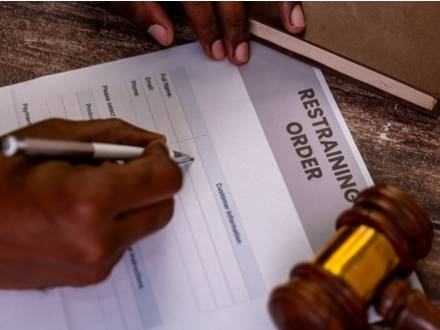Going to Court for an Order of Protection in Illinois
 If you are looking for long-term protection from a domestic abuser, you can petition for intervention from the courts. In Illinois, a plenary order of protection is the most effective restraining order you can obtain, but it also requires you to make a case to a judge. A St. Charles, IL family law attorney can represent you in a hearing for a plenary order of protection and present an argument for your safety.
If you are looking for long-term protection from a domestic abuser, you can petition for intervention from the courts. In Illinois, a plenary order of protection is the most effective restraining order you can obtain, but it also requires you to make a case to a judge. A St. Charles, IL family law attorney can represent you in a hearing for a plenary order of protection and present an argument for your safety.
Dealing with domestic violence is traumatic. Shaw Sanders, P.C. can provide you with compassionate counsel and aggressive advocacy, drawing on decades of legal experience to assist with your case.
What Can a Plenary Order of Protection Do?
If a judge grants a plenary order of protection, it may include several orders to protect you from further harm, such as:
-
Forbidding your abuser from going near you or your home, workplace, or school
-
Compelling your abuser to give up his or her guns
-
Prohibiting your abuser from taking any shared personal property
These are only a few of the terms that a plenary order of protection can include. The judge can also enter other forms of injunctive relief that might be necessary to prevent further abuse (750 ILCS 60/214). Once a plenary order of protection goes into effect, it can last for up to two years, but it can be renewed at the court’s discretion.
While an order of protection is very useful, keep in mind that it also has the potential to escalate a situation. If you fear that your abuser will retaliate against you for requesting an order of protection, go somewhere safe, such as a shelter or a trusted friend’s home, before requesting legal intervention from the court.
What Do I Have to Show at a Hearing for an Order of Protection?
At a hearing for a plenary order of protection, you must show that you have suffered domestic abuse from the person you are seeking the order against. Note that the abuse does not have to be strictly physical. It can also include sexual abuse, intimidation, and harassment.
To obtain a plenary order, you must show that the abuse occurred through a preponderance of evidence, which means that you must show that it was more likely than not that the abuse occurred. Your attorney can help you compile evidence and call witnesses to strengthen your case.
What if My Abuser Does Not Attend the Hearing for a Plenary Order?
If your abuser does not show up to court, it could have a significant impact on the outcome of your case. Assuming that your abuser was given proper notice of the hearing, the court can impose the order without him or her present. This is referred to as a "default judgment."
Meet With a St. Charles, IL Order of Protection Attorney
At Shaw Sanders, P.C., we can help you seek legal protections in the face of domestic violence. We will listen to the details of your case and advise you of your rights, working toward a solution for your safety in the long term. If you need urgent protection from abuse, call 911 immediately.
Our Kane County, IL domestic violence lawyers are ready to help you. To schedule a free initial consultation, call our offices at 630-584-5550 today.

 630-584-5550
630-584-5550







 630-584-5550
630-584-5550